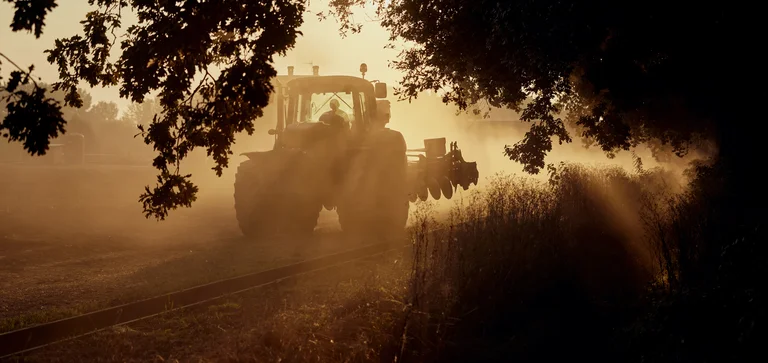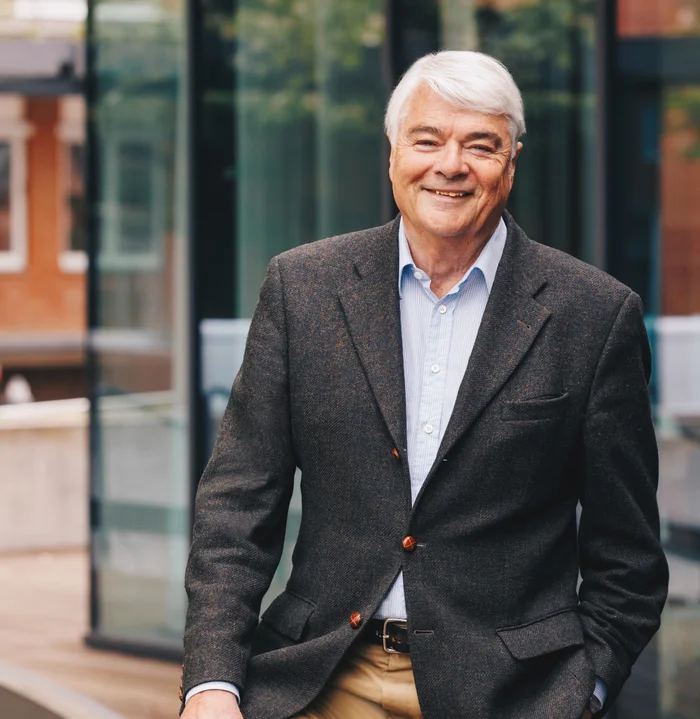To our shareholders


Dr. Felix Büchting,
Spokesperson of the Executive Board
Foreword of the Executive Board
Dear shareholders, partners and friends of KWS,
I am pleased to welcome you here for the first time in my new role as Spokesperson of KWS’ Executive Board. At the Annual Shareholders’ Meeting last December, we completed our long-planned generational change on the Executive Board and the Supervisory Board, thus laying the foundations for the future. Thinking in terms of generations is an essential part of our corporate culture – it defines our day-to-day activities and guides our commercial decisions.
The fact that we are able to tell you about a very successful year in this Annual Report, which I warmly invite you to read, is due to the groundwork we laid some time ago to achieve that. That is because plant breeding is an arduous, time-consuming undertaking. It can sometimes take 10 years to develop a new variety. To be successful in that requires staying power, creativity and innovativeness, as well as a high degree of entrepreneurial independence.
In 2010, we decided to add sunflower to our portfolio, for example. In the past fiscal year – some 13 years later – we were able to submit our own varieties for official approval for the first time after intensive research and breeding work, with an eye to marketing them in the coming years. Sunflower plays a major role in farming in Southeastern and Eastern Europe in particular and will also gain in importance in the future in view of climate change, since this crop’s water use is relatively good.
Another example is Brazil, where we started breeding corn for tropical and subtropical regions just over a decade ago. KWS was hardly known in Brazil at the time, but now we have an innovative portfolio of varieties in this important market and, with a share of around 10%, are one of the leading seed vendors there.
Now let’s turn from the past and look to the future, in which we as a seed specialist will need more than ever before to supply farmers with adapted and high-yielding varieties. After all, as the repercussions of climate change become more and more tangible, the challenges facing agriculture worldwide are growing. Stable harvests and high food security can no longer be taken for granted in times of increasing weather anomalies such as long periods of drought, heavy rainfall or storms. In addition, climate change is leading to a greater prevalence and spread of plant diseases and insects that previously had hardly any relevance.
At the same time, as one of the world’s largest emitters of greenhouse gases, agriculture must do its bit to reduce the ecological footprint and strengthen biodiversity and soil health. The European Union has set concrete and ambitious targets for European agriculture with its Farm-to-Fork strategy as part of the Green Deal. By 2030, for example, the use of chemical pesticides is to be cut in half and the use of fertilizers reduced by one-fifth, while organic farming is to be significantly expanded – an enormous challenge given the above-described impacts of climate change and the need to maintain food security.
As one of the world’s leading seed specialists, we see ourselves as part of the solution to this challenge. We believe that innovative seed will play a key role in the transformation toward more sustainable agriculture. In the future, innovative varieties will not only safeguard yields, but also have resistance to diseases and pests. As a result, for instance, the use of pesticides can be reduced, while the plants require fewer nutrients such as nitrogen or have demonstrably positive effects on soil health.
We have set ourselves clear goals in this regard as part of our Sustainability Ambition 2030. For example, our goal moving forward is for at least a quarter of our varieties to be suitable for low-input farming. You can find out how we are tackling these and other exciting innovation topics at KWS in our Research and Development Report starting on page 26, which I would very much like to commend to you.
By its very nature, an Annual Report focuses on facts and figures. However, our success, which is evidenced in the key figures for fiscal 2022/2023, has many stories and faces – first and foremost those of our more than 5,000 dedicated and highly qualified colleagues at KWS worldwide! It fills me with pride and joy to see how the special “KWS spirit” and our shared mission – “Our passion for plants sustains farming, food and planet” – drive and unite us in striving for a better world in which there is food security for all and we conserve the environment.
We live our core values of closeness, reliability, foresight and independence not only within the company, but also with farmers, business partners and shareholders.
I would like to take this opportunity to thank all of you for the successful working relationship and your trust in KWS, and I hope you find this Annual Report both informative and interesting.

Felix Büchting (Spokesperson) Research & Breeding, Human Resources, Strategy, Farming, Corporate Office & Services
Nicolás Wielandt Corn Europe, South America, North America and China
Peter Hofmann Sugarbeet, Vegetables, Cereals, Oilseed Rape/Special Crops & Organic Seeds, Marketing & Communications
Eva Kienle Finance & Procurement, Controlling, Global Transaction Center, Legal Services & IP, Information Technology, Compliance Office, Governance & Risk Management

Philip Freiherr von dem Bussche, Chairperson of the Supervisory Board
Report of the Supervisory Board
KWS SAAT SE & Co. KGaA and the personally liable partner, KWS SE, both have a separate Supervisory Board, each with the same shareholder representa-tives serving on them. The Supervisory Board of KWS SAAT SE & Co. KGaA has two employee representa-tives in addition to the shareholder representatives. Both boards hold some meetings together, with the result that the employee representatives are informed at an early stage in upcoming decisions by the per-sonally liable partner.
The Supervisory Board of KWS SAAT SE & Co. KGaA discharged the duties incumbent on it in accordance with the law, the company’s Articles of Association and the bylaws, regularly advised and monitored the personally liable partner, represented by its Executive Board, in its activities and satisfied itself that the company was run properly and in compliance with the law and that it was organized efficiently and cost-effectively. The Supervisory Board extensively dis-cussed all significant business transactions and carefully accompanied the Executive Board in all funda-mental decisions of importance to the company. As is customary, the Executive Board involved the Supervi-sory Board in all key decisions.
The Supervisory Board was provided with the necessary information in writ-ten and oral form regularly, promptly and comprehensively. This included all key information on relevant questions, in particular relating to strategy, planning, the business performance and the situation of the company and the KWS Group, including the risk situation, risk management and compliance. In the year under review, there were no transactions with related parties which require the Supervisory Board’s approv-al in accordance with Section 111b of the German Stock Corporation Act (AktG).
The complete Report of the Supervisory Board can be downloaded here.
